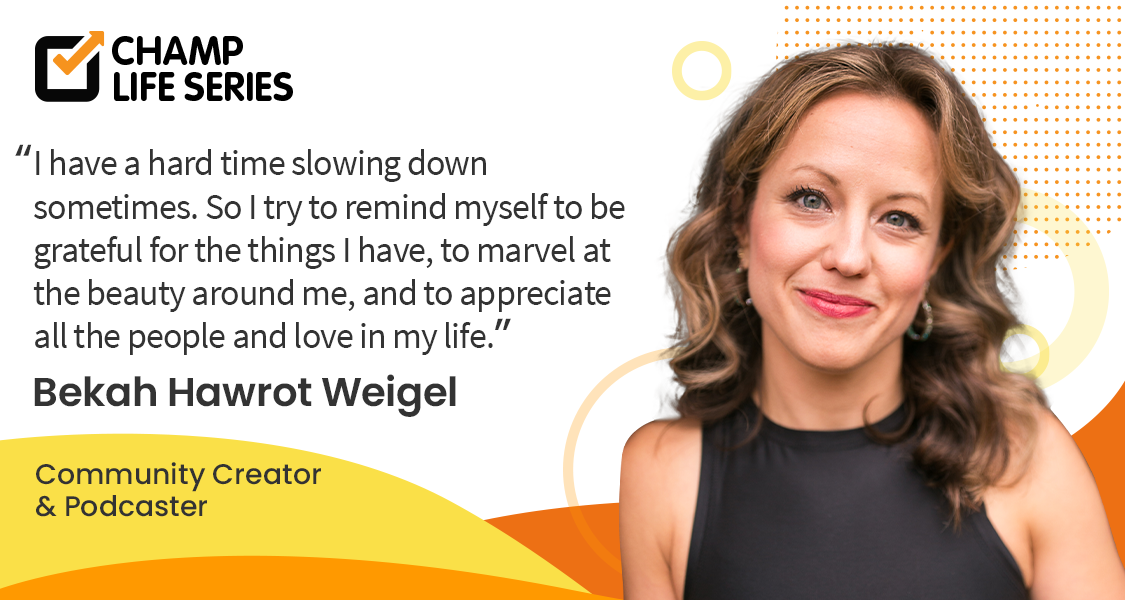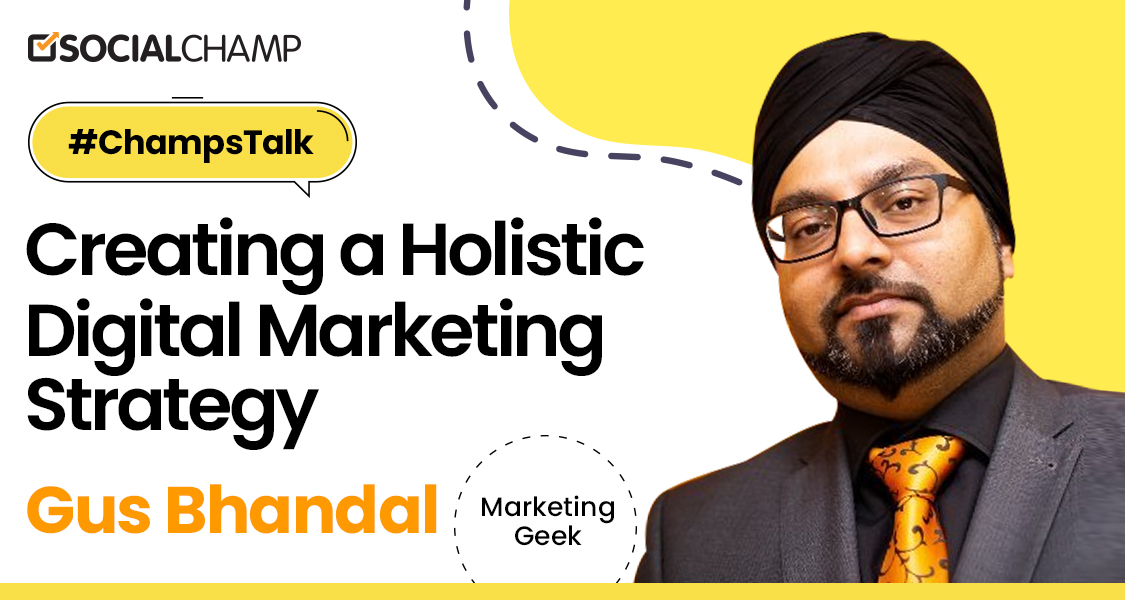In the ever-evolving landscape of technology and creativity, few individuals embody versatility and innovation quite like Bekah. With a knack for code, a passion for screenplays, and a gift for blogging, she has become a formidable presence in the realm of tech and creative communities.
A proud graduate of a coding Bootcamp, Bekah’s expertise extends beyond writing code to include community creation, podcasting, and captivating audiences as a keynote speaker and Twitch streamer (@BekahHW). But what truly sets her apart is her unique perspective shaped by her journey with ADHD. Join us as we explore Bekah’s multifaceted talents and discover how she continues redefining boundaries in the world of technology and storytelling.
How do you find the right tone when writing code screenplays and content? Any specific techniques or considerations you keep in mind?
The most significant thing always is to figure out who your audience is, and sometimes you’re your audience. So if I want to sit down and write something, I don’t put that much pressure on myself to try and decide what the tone should be and what it should look like. I just write from my heart. But when writing other things, you must be more consistent with your actions. And so, as I said before, I sometimes write with my brothers, and we’re working on a short fiction piece right now.
So each of us has taken a different part of the story, so we’ve written it in our style. And then, as we revise it, we have to think about, okay, how can we make this a coherent voice? What should the overall tone be, and how can we blend things? And so, considering what your voice should look like for your audience is a big part. And when writing code, you’re usually writing it with other people too.
Tone can vary greatly depending on the target audience. How do you adapt your writing voice to cater to different readers, such as developers, beginners, or non-technical stakeholders?
There’s often an expectation of a formality in technical writing, and it’s often very dull. And so storytelling becomes a massive part of being effective in whatever you’re writing, whether technical documentation, a blog post about implementing code, or strategy PowerPoints. Like, all of the things that we’re writing should be telling a story because human beings are built for storytelling. And when we can tell a story with what we’re writing, it impacts people much more.
And there are companies out there that are doing precisely that. They are taking dry technical materials and teaching folks how to tell stories through those technical materials to be more effective. And that’s one of the reasons why some of my blog posts have been more popular. I just published one on Monday that was like a play on choose your adventure of Getting into open-source coding. And I went through it, and I created five different characters. I looked at their goals and purpose for what they were doing and then built a scenario around each character.
How do you balance maintaining a professional tone and injecting personality or creativity into your code screenplays and content?
Leading with empathy is crucial when considering the tone of your writing. By putting yourself in the shoes of your audience and understanding their needs, you can better determine the appropriate tone. Being a reader yourself is essential for grasping audience and tone. Reading enhances your writing skills and allows you to see what others are doing. Building on your strengths and observing others’ approaches can help you write in the right tone for your audience.
When addressing beginners, it’s important not to make assumptions and to define any unfamiliar jargon or provide references. To truly understand your audience, listen to their problems and needs, which plays a significant role in developing the appropriate tone.
What role does the tone of your writing play in fostering community engagement and building a loyal audience for your blog and podcast?
A big part of building community is to be authentic and a storyteller, right? And so we’re all connected to stories. So figuring out what stories to tell helps us connect to other people who are there and be open to talking about things. So if somebody has a similar experience or sees that you’re being honest and vulnerable in your responses to them, they will be more likely to be open and weak too. And what that does is it allows you to create a trusting relationship that builds into community, trust, and, by extension, audience. I like approaching the congregation before the audience, which means developing authentic relationships with people.
That doesn’t scale because if you want a large audience, you must consider how to reach the broadest number of people and what I’m writing. And that all comes down to our unique needs and wants, but at the core of it, we are all connected and want to be a part of something. We don’t want to be alone. And so finding a way to convey that in your writing becomes essential to that building community.
Are there any common pitfalls or mistakes developers make regarding tone in their code screenplays or technical writing? Any tips to avoid them?
Yeah, the biggest thing is not condescending to your audience. And I know that that sounds silly, but one extends-tends beyond fiction writing, and it goes into tech, medical, or, beyond technical wr, citing,d it goes into fictional writing. And so you don’t want to make assumptions about people even saying things like oh, just in case you didn’t know this, you don’t need to preface your work with that. You can just give them something.
You don’t have to say that. Or, in another example, sometimes authors of fiction, writers of fiction, or screenplays, just overwrite. That becomes a huge problem. And overwriting comes down to thinking about your audience, too, because you’re assuming that your audience can’t read through the lines or think critically about your actions. So there’s a delicate balance you need to have by giving your audience some credit for what they’re doing and ensuring that they have all the information they need. And it’s tricky, but it comes down to thinking about who your audience is, their needs, and how you can help them get to that final journey or destination in their journey that you want them to go on.
When working on collaborative projects, how do you ensure that the tone of your code screenplays aligns with the overall voice and style of the team or organization?
Effective communication and analysis are key in ensuring the alignment of tone in collaborative projects. Before writing, it’s important to discuss and establish project expectations, define the audience collectively, and understand what that means to each team member. Allowing everyone the freedom to develop their ideas within their own style and tone is crucial to find common ground. Perfection should not be expected in the first iteration, but rather an openness and ongoing communication to reach a shared resolution.
Taking notes on inconsistencies and areas that need improvement is essential. Referring back to the audience and their needs helps refine the content to ensure consistency, coherence, and value. In collaborations with other organizations, disagreements are natural, but open dialogue is crucial to address concerns and maintain focus on the target audience. It’s important to actively learn about the target audience through research, community engagement, and understanding their preferences in order to fulfill their needs effectively.
Are there any specific tools or resources you rely on to help you craft the right tone for your code screenplays and content? Any recommendations for fellow writers?
Yeah, for sure. One of the most excellent tools I’ve discovered over the last couple of months is using AI to help me with my process. And so, I like to do a lot of research about things, and it’s made it much easier for me to look at how to research a particular audience and develop writing for them.
And then, ultimately, after I’ve written a blog post, I often go back through Chat GPT and say, how can I improve it for this particular audience? Or how can I optimize this for SEO? And so to have that as kind of that, it’s like a bonus helper there to help me improve my writing. And one of the things that I also like about using Chat GPT is.
How do you balance maintaining a professional tone and injecting personality or creativity into your code screenplays and content?
Finding the right balance between professionalism and creativity is essential. I’m a big fan of storytelling, so any opportunity to use personality and creativity can make your work stand out and engage your audience. Blend technical proficiency with originality.
Are there any specific tools or resources you rely on to help you craft the right tone for your code screenplays and content? Any recommendations for fellow writers?
To tailor my creativity and personality, I understand the target audience and context of the content. If the content is aimed at a more formal audience, I remain professional, concise, and focused on conveying the purpose. I experiment with language, metaphors, and storytelling techniques for a casual or creative setting to add personality and engage the reader.
Can you share some practical tips or actionable advice for aspiring code screenwriters and content creators on effectively developing and refining their writing voice?
Crafting the right tone is a nuanced process; there’s no one-size-fits-all tool. Stay engaged in communities you want to write for and recognize trends and conventions.
Another helpful resource is reading and studying screenplays and content created by writers you admire. Analyzing their writing style and tone and how they balance professionalism and creativity can be super helpful and inspirational. Finally, seek feedback.
Tips:
- Read
- Write regularly
- Get feedback
- Experiment






